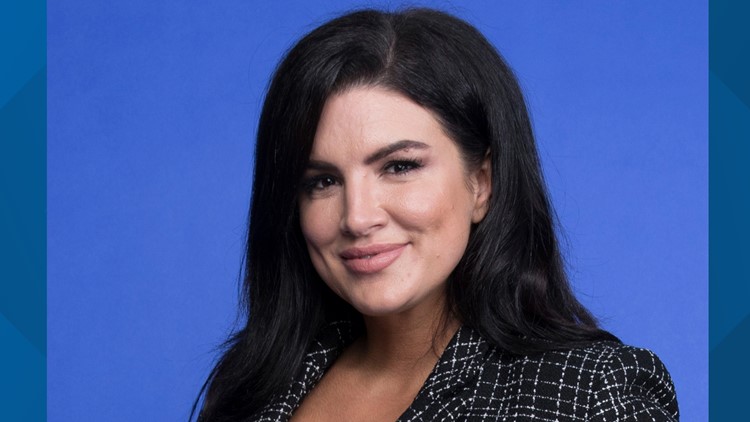Gina Carano Disney Lawsuit: A Hollywood Showdown

Setting the stage
The Gina Carano Disney lawsuit sits at the crossroad of pop culture, office policy, and personal expression. Carano, a fan favorite from the Mandalorian world, lost her role in 2021 after posts on her social accounts set off a wave of reactions. Some viewers thought the firing made sense; others saw it as overreach. Either way, the moment her contract ended, a larger conversation began about what workers can say online without risking their jobs. In analyzing the Gina Carano Disney lawsuit, Nakase Law Firm Inc. has pointed out that beyond the headlines and memes, this case digs into big employment law questions—questions that could matter to anyone with a job, not just Hollywood stars.
Picture this: you share a political take on your own time, and the next morning your manager calls you in. Is that a career-ending mistake or a private moment that should stay private? California Business Lawyer & Corporate Lawyer Inc. has handled employment litigation that shows how disputes like these mirror larger social debates about free expression and workplace rights.
Who is Gina Carano anyway?
Before she was acting, Carano made a name in women’s mixed martial arts. Fans later connected with her tough, straightforward screen presence, especially as Cara Dune in a galaxy far, far away. Her career track looked strong, and then it didn’t. One set of posts, lots of online noise, and the working relationship stopped. That switch—from rising talent to headline—felt sudden to many viewers, and it raised the same questions regular workers face when a single post snowballs into employment trouble.
Here’s a quick example from outside Hollywood: a school employee vents on Facebook on a Sunday night, thinking only friends will see it. By Monday, screenshots are in the principal’s inbox. The outcome? A reprimand, suspension, or even termination. Different place, same pattern.
What’s at the heart of the lawsuit?
Carano says she was cut loose for her political views. Disney says brand protection drove the decision. So, which one carries the day—an employee’s right to speak or an employer’s need to protect its image? In California, that’s not a simple either–or. State protections around political activity give this case legal teeth and turn a Hollywood dispute into a statewide test.
Disney’s side of the story
From the company’s angle, the brand comes first. One post can spark hashtags, media cycles, and merchandise blowback. So the thinking goes: protect the franchise, calm the storm, move forward. And yet, here’s the rub—when a company acts in the name of reputation, people will ask whether it also weighed fairness, consistency, and context.
Carano’s legal position
Carano’s team argues she took a financial hit, her reputation suffered, and the rules weren’t applied evenly. That last point matters to everyday workers too. If policy is clear and enforced across the board, people usually accept it. If one person is singled out while others get a pass, trust erodes fast. That’s where lawsuits tend to sprout—right in the gap between written policy and real enforcement.
What makes this case different
Some folks say, “Private employer, private rules.” True in many places, but California adds more layers. Political activity protections can reach into situations that look, at first, like simple workplace discretion. So this isn’t just a question of whether an employer can act; it’s a question of how far those actions can go when politics and speech are part of the picture.
The role of social media
Let’s be honest: social platforms make work life messier. Carano wasn’t at a press conference; she was posting on personal accounts. Even so, the ripple effects reached a prime-time franchise. Lots of workers have lived a smaller version of that story. A tweet from college resurfaces. A sarcastic comment lands badly. A private account isn’t so private after a screenshot. And then, consequences.
All of that leaves courts and companies trying to answer the same practical question: where does personal life end and workplace responsibility begin? There isn’t a neat line. So, policies matter, context matters, and timing matters. And yes, consistency matters most of all.
Free speech, or not quite?
Supporters often frame this as a free speech showdown. Legally, the First Amendment protects against government limits on speech, not employer decisions. So the fight in court turns on California employment rules, not a constitutional claim. It’s a subtle shift, and it changes how lawyers argue the case and what a judge can actually decide.
Industry-wide stakes
Studios and streamers are paying attention. If Carano wins, contracts and policies may get rewrites—clearer language, tighter guardrails, and more attention to political activity clauses. If Disney wins, companies may feel safer acting quickly when posts start to trend in the wrong direction. On the creative side, actors, writers, and crew might pause before posting a hot take. Or, on the flip side, they might push back and ask for stronger speech protections in their deals.
How fans and the public see it
Reactions split early and stayed that way. Some viewers see Carano as pushing back against corporate control of personal views. Others focus on Disney’s right to choose who represents a global brand. The larger culture has been having that same argument for years, and this lawsuit just gave it a fresh headline and a familiar face.
What could happen next
Several paths sit on the table, and each one tells a different story:
- Settlement: both sides agree on terms, and the noise fades.
- Carano wins: compensation lands, and companies rethink how they approach political speech tied to employment.
- Disney wins: brand protection keeps its strong footing, and social media clauses keep getting sharper.
No matter the path, policy teams in boardrooms across California will be taking notes.
Lessons for everyday workers and employers
For employers, clear writing beats vague promises. Spell out what counts as brand harm, what counts as personal speech, and what happens next when lines get crossed. Train managers so enforcement stays steady across teams. Keep records. Apply the same standards to everyone.
For employees, a few gut checks can help: if a post ends up on your supervisor’s desk, would you stand by it? Is the tone you’d be okay reading aloud at work? Are you posting in the heat of the moment? Taking ten minutes before hitting publish can save weeks of cleanup later.
A real-world story from a small design shop sticks with me. A junior designer shared a spicy thread one night. The next morning, a client emailed the owner with screenshots. The owner didn’t fire the designer. Instead, they talked through tone, added a short, plain-language policy, and set a “sleep on it” rule for hot takes. The client stayed. The designer learned. The shop avoided a meltdown. Not every story can resolve that cleanly, but that approach—conversation first, paperwork second—helped.
Wrapping it up
The Gina Carano Disney lawsuit isn’t just a celebrity headline. It’s a mirror for the modern workplace, where a personal post can spill into professional life by sunrise. Courts will sort the legal lines, and that outcome will shape contracts, policies, and expectations for years. In the meantime, one simple idea travels well from Hollywood sets to hometown offices: clarity helps everyone. Clear policies, steady enforcement, and a little care before posting can keep careers—and companies—on track, even when the internet gets loud.
